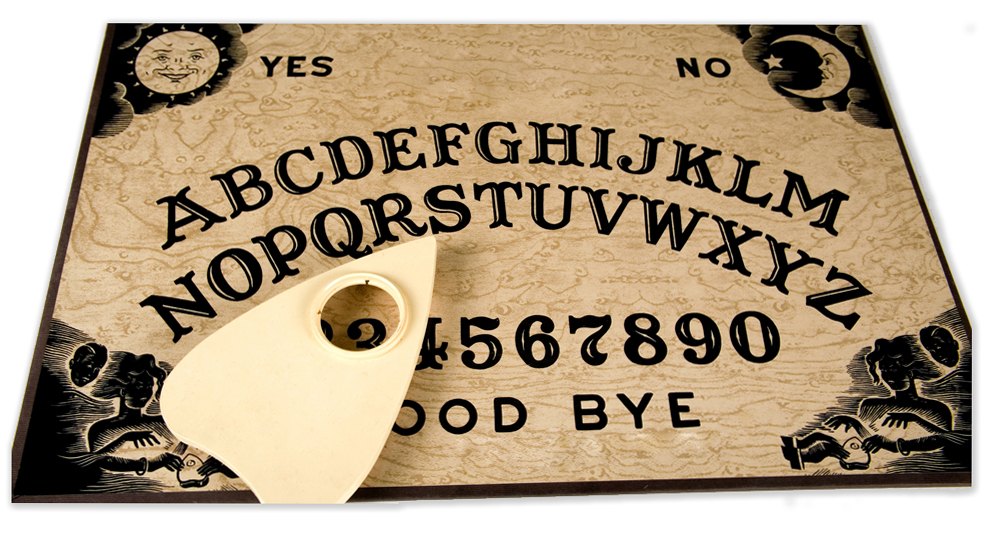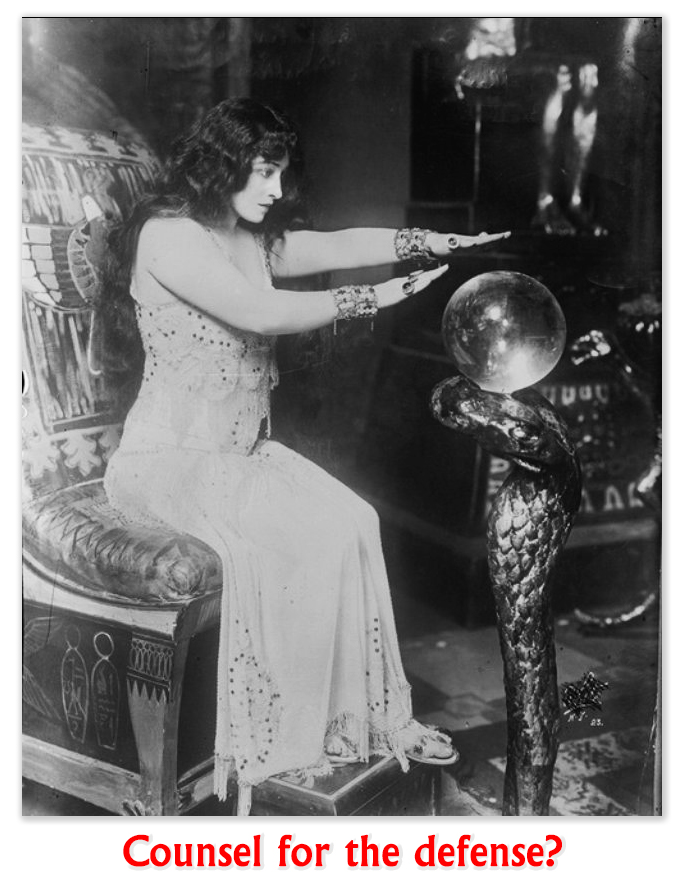We post news and comment on federal criminal justice issues, focused primarily on trial and post-conviction matters, legislative initiatives, and sentencing issues.
2255 FILERS: “IAC” IS NOT “INEFFECTIVE ASSISTANCE OF CLAIRVOYANT”
 One of the most common arguments made in a post-conviction motion under 28 USC 2255 – which is the federal prisoner’s stand-in for a writ of habeas corpus attacking the conviction or sentence – is that the defendant’s trial attorney rendered ineffective assistance. The Supreme Court has held that the 6th Amendment guarantees the right to counsel in felony cases, as every schoolchild knows, but the Court has gone beyond that, holding that the right to counsel is meaningless without the right to effective counsel, that is, an attorney who does not screw things up by committing what amounts to malpractice.
One of the most common arguments made in a post-conviction motion under 28 USC 2255 – which is the federal prisoner’s stand-in for a writ of habeas corpus attacking the conviction or sentence – is that the defendant’s trial attorney rendered ineffective assistance. The Supreme Court has held that the 6th Amendment guarantees the right to counsel in felony cases, as every schoolchild knows, but the Court has gone beyond that, holding that the right to counsel is meaningless without the right to effective counsel, that is, an attorney who does not screw things up by committing what amounts to malpractice.
Unsurprisingly, to a prisoner employing hindsight, the end justifies the means (in a way). We once had a guy call us up to say, “I got convicted. My lawyer was ineffective.” We asked what his lawyer had done that constituted ineffective assistance, to which the inmate impatiently replied, “You don’t get it. My lawyer was ineffective. I got convicted.” We again asked how the lawyer had been ineffective, before it dawned on us that the inmate was saying that the fact of his conviction was proof of his lawyer’s ineffectiveness.
 It really doesn’t work that way, as defendant Tyrone Kirklin learned last week. Ty was convicted of a string of robberies in which the jury found he had sent accomplices into banks with handguns. The jury did not find that the accomplices brandished the guns, which would have made Ty’s 18 USC 924(c) mandatory consecutive sentence at least seven years instead of five. However, at sentencing the judge found that Ty’s sidekicks had indeed brandished the weapons, and that Ty had convinced them to do so. He raised Ty’s mandatory consecutive sentence to seven years.
It really doesn’t work that way, as defendant Tyrone Kirklin learned last week. Ty was convicted of a string of robberies in which the jury found he had sent accomplices into banks with handguns. The jury did not find that the accomplices brandished the guns, which would have made Ty’s 18 USC 924(c) mandatory consecutive sentence at least seven years instead of five. However, at sentencing the judge found that Ty’s sidekicks had indeed brandished the weapons, and that Ty had convinced them to do so. He raised Ty’s mandatory consecutive sentence to seven years.
At sentencing, Ty’s lawyer did not argue that the jury – not the judge – had to make the “brandishing” finding, and that the finding had to be made beyond a reasonable doubt. But during Ty’s appeal, the Supreme Court handed down Alleyne v. United States, reversing its 2002 holding in Harris v. United States and holding that facts that set or raised a mandatory minimum sentence – like facts that raised a maximum sentence – had to be found by a jury beyond a reasonable doubt.
Ty’s Court of Appeals considered Ty’s appeal in light of the new Alleyne holding, but said that because Ty had not raised the issue in the district court, the seven-year minimum sentence could be reviewed for “plain error.” Doing so, the Circuit affirmed his sentence because the court’s error did not affect the “fairness, integrity, or public reputation of the proceedings… The evidence that the accomplices brandished the firearms and that Ty was responsible for their having done so was overwhelming. It seemed ‘highly unlikely’ that the jury would have found him guilty of aiding and abetting the use or carrying of the firearms without finding him equally responsible for the brandishing.”
So Ty filed a 2255 motion, arguing his lawyer was constitutionally ineffective for not raising the Alleyne issue at sentencing. Last week, the 7th Circuit turned him down. After all, the Circuit said, Harris was the law when Ty was sentenced. It was not until three months after sentencing that the Supreme Court granted certiorari in Alleyne, which first “signaled that the Supreme Court would consider whether to overrule Harris.”
 Ty argued his attorney’s performance was objectively unreasonable because the lawyer should have anticipated the possible overruling of Harris, and thus should have objected that the district court made the brandishing finding instead of the jury (to preserve the objection in case something later happened at SCOTUS). Ty said a competent lawyer would have realized that the Alleyne decision overruling Harris was imminent.
Ty argued his attorney’s performance was objectively unreasonable because the lawyer should have anticipated the possible overruling of Harris, and thus should have objected that the district court made the brandishing finding instead of the jury (to preserve the objection in case something later happened at SCOTUS). Ty said a competent lawyer would have realized that the Alleyne decision overruling Harris was imminent.
The 7th said Ty’s “claim of ineffective assistance depends on hindsight, which Strickland v. Washington warns against… With the benefit of hindsight, the overruling of Harris can too easily seem almost inevitable. But it was not inevitable to Justice Scalia, who concurred in both Apprendi and Harris and dissented in Alleyne. Nor was it inevitable or appropriate in the view of the other Justices who dissented in Alleyne. We have said repeatedly that the guarantee of effective assistance of counsel does not require an attorney to anticipate every eventual change in the law.”
Kirklin v. United States, Case No. 17-1056 (7th Cir. Mar. 5, 2018)
– Thomas L. Root

